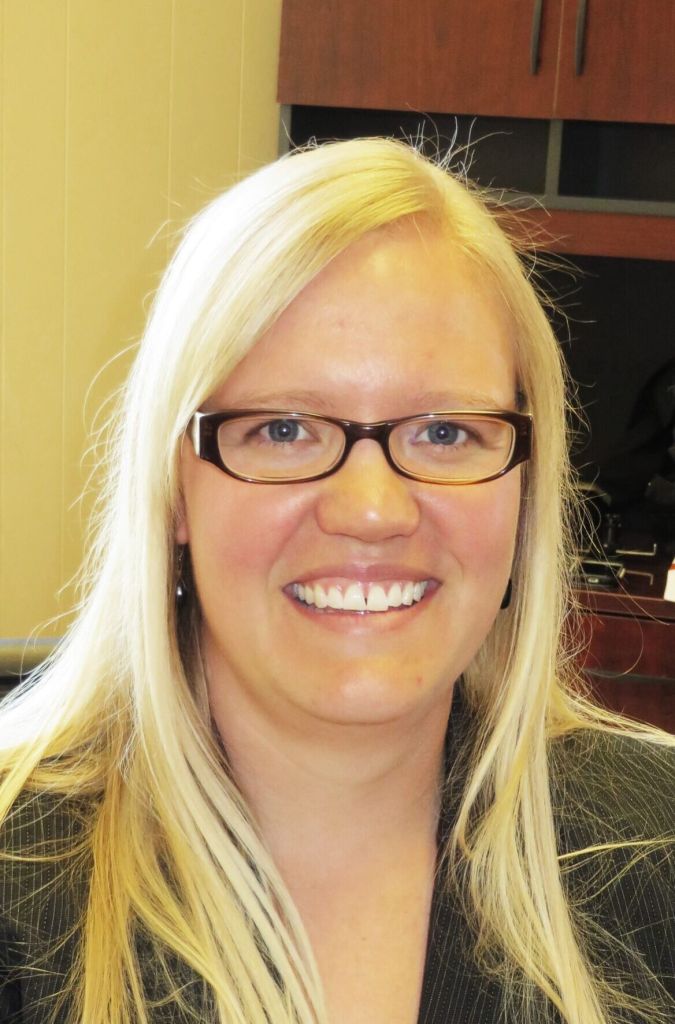District attorneys’ disqualification of Wes Williams a focus in 10th Judicial District race
Published 8:00 am Saturday, April 27, 2024

- Frolander
LA GRANDE — In Oregon, attorneys who believe a particular judge won’t give their client a fair hearing or trial can file a motion to disqualify that judge from the case.
Attorneys who file those motions don’t have to lay out specific reasons for the motions; they just have to attest that they’re making the motions in good faith and not to delay a legal proceeding. Judges can challenge these motions, but the burden of proof is on the judges to show that the motion was filed in bad faith or as a delaying tactic.
Since 2020, Union County District Attorney Kelsie McDaniel has routinely filed motions disqualifying Judge Wes Williams from presiding over criminal cases — and, although the law doesn’t require it, the DA filed a 31-page memorandum that year outlining the reasons she believed prosecutors couldn’t get a fair trial with Williams.
By January 2021, Wallowa County District Attorney Rebecca Frolander was filing similar motions to disqualify Williams.
The result? All the criminal cases in the 10th Judicial District, which covers Union and Wallowa counties, now are being handled by the district’s presiding judge, Thomas Powers, or by other judges brought in from outside the district.
The disqualifications — Williams has been disqualified from hundreds of cases since 2020 and more than 170 times since the start of 2024 — have emerged as a key issue in what has become an unusually heated judicial race, pitting Williams against challenger Jared Boyd, a La Grande attorney.
Questions have been raised about whether the workload in the district is fairly divided between its two judges — and how the disqualifications might be affecting the court’s day-to-day operations.
Boyd puts it bluntly: “We need a functioning judicial system, and I just don’t think we have one with the current situation.”
Even without the criminal cases, though, Williams says he’s carrying his fair share of the workload in the district — and he believes the disqualifications are primarily a political gambit.
Now, another factor looms over the race: A bill passed by the 2023 Legislature, Senate Bill 807, allows a judge to challenge a disqualification motion if it “effectively denies the judge assignment to a criminal or juvenile delinquency docket in any county within the judge’s judicial district,” which appears to be the case with Williams and the 10th Judicial District’s criminal docket. And, in those cases, the bill shifts the burden of proof away from the judge and onto the attorney making the motion. The bill was prompted, in part, by the situation in the 10th Judicial District.
Williams says that if he is reelected, he will challenge disqualifications, setting into motion a process that leads to a public hearing before a disinterested judge. It likely will be the first time the provisions of Senate Bill 807 will be put into effect anywhere in Oregon.
But that hearing, if it comes, won’t occur until after the May 21 primary election, which almost certainly will determine the winner of the race.
The disqualifications begin
Williams won his seat on the 10th Judicial District bench in the 2018 election, defeating the incumbent, Mona Williams (no relation), who was appointed by Gov. Kate Brown. Wes Williams said both McDaniel and Frolander supported Mona Williams in that election, one of the reasons why he believes the disqualifications are at least to some degree politically motivated.
McDaniel disagrees with Williams’ statement about the motivation behind the disqualifications. Both district attorneys argued criminal cases before Williams for over a year before seeking to disqualify him.
Williams was sworn in as a judge in January 2019; circuit court judges in Oregon serve six-year terms and currently make $174,108 a year.
Williams said he heard both criminal and civil cases for 15 months in Union and Wallowa counties.
“No problem,” he said. “I was never appealed. Every decision I made was a fair or correct legal decision.”
Then, he said, McDaniel, the Union County district attorney, began filing motions to disqualify him from hearing criminal cases — “exploiting a loophole in the law,” Williams said. Mediation sessions to help find solutions came up empty, sources say — although participants in those sessions, citing the confidential nature of the mediation, declined to comment about them on the record.
In April 2020, McDaniel filed her 31-page memorandum summarizing what she identified as key issues with Williams’ performance on the bench.
McDaniel’s memorandum listed six general areas that bolstered her belief that her office could not obtain a fair or impartial trial or hearing before Williams, and added specific examples of cases in which Williams demonstrated “an overarching bias against the attorneys who represent the State or Oregon and are employed at the Union County District Attorney’s Office.”
The six areas included initiation of criminal and civil proceedings without a lawyer for the state; noncompliance with certain Oregon statutes, rules and case law; a lack of consideration for victims’ rights and protections; legal decisions “far out of keeping with local standards; release decisions that do not comply with law or local standards; and “a clear alignment with and preference for defendants (and their attorneys) in criminal matters as evidenced by giving comments, legal advice and recommendations from the bench.”
When he first read McDaniel’s memo, Williams said, “it was like a gut punch. … I knew that what she was doing was taking my remarks out of context and my decisions out of context.”
He said he was worried that voters who had supported him would read the memo “and think I failed them. That’s what bothered me the most. I knew it was false. But I was worried that people would think I wasn’t working hard for them.”
For his part, Boyd said he had witnessed some of the specific incidents that McDaniel cited in her memo.
A Williams supporter, retired public defender Anne Morrison, filed a complaint with the State Bar of Oregon against McDaniel, arguing that the district attorney had misrepresented the specific cases cited in the memo. The State Bar dismissed the complaint, saying that McDaniel had operated within legal standards and guidelines while writing the memo.
In January 2021, Frolander started filing disqualification motions in Wallowa County. (Frolander has not filed anything similar to McDaniel’s affidavit, noting that the law does not require her to offer specific reasons in support of a disqualification motion.)
Williams said other judges in the state have faced similar blanket disqualifications — and that was part of the reason why his wife, Jennifer Williams, and other supporters started work on what became Senate Bill 807. (Wes Williams said he was not directly involved with the legislation and did not lobby for it.)
Senate Bill 807
Like most pieces of legislation, Senate Bill 807 was amended as it moved through the session. Under the original version of the bill, for example, if an impartial judge ruled against a motion to disqualify a judge, the moving party would have been barred from filing a similar motion for six months.
Most of the testimony on Senate Bill 807 supported the measure; a group of retired judges, for example, backed the bill on grounds that because “an attorney may remove a judge under these laws simply upon a belief of bias, the law is subject to abuse that erodes the public’s confidence and threatens the independence of the judiciary.”
But the support from retired judges wasn’t universal. Five judges from Eastern Oregon, including Russ West, a retired 10th Judicial District circuit judge, asked legislators to oppose the measure and suggested revisions, including removing punitive sanctions on attorneys filing disqualification motions that had been rejected. That suggestion made it into the final version of the bill.
The Oregon District Attorneys Association opposed the bill, as did McDaniel and Frolander, along with Baker County District Attorney Greg Baxter. In a letter to the Legislature, the three prosecutors called Senate Bill 807 an “unfairly applied and punitive proposal.”
Moving to disqualify a judge, the three wrote, is a “nuclear option” — but “sometimes we are left with no other choice to protect the interest of the state, public safety, victims and defendants in our jurisdictions. We can speak from personal experience, as well as from the shared knowledge of fellow current and retired district attorneys about the great lengths, and extreme situations that lead to the ultimate need to file a disqualification of a judge. We want you to know that this decision is a last resort, after every effort to try to make the situation workable.”
The final bill passed easily in both chambers of the Legislature, with both Rep. Bobby Levy, R-Echo, and Sen. Bill Hansell, R-Athena, voting in favor.
The bill went into effect on Jan. 1, 2024. In theory, Williams — or any other judge facing a disqualification motion — could have appealed the motion beginning Jan. 2.
Williams has not done so yet, even though more than 170 disqualification motions have been filed against him since the start of the year.
“Any judge who is subject to a motion to disqualify — the ball is in that judge’s court to challenge it and then it triggers this fairly tight timeline,” said Powers, the presiding judge in the 10th Judicial District.
Williams said he’s been too busy with his job and the campaign to challenge a disqualification — and he also hopes that, if he’s reelected, the district attorneys will rethink their blanket disqualifications. He said if he wins the upcoming election, he’ll serve only one more term, so any political considerations would be moot.
“If I win reelection, there’s no reason for them to remove me from the criminal docket,” he said. “I think they’ll have to respect the people’s vote.”
That’s not how Boyd sees the situation. And he said that requesting and holding the hearing before the election would have given voters important information.
“I think, for the good of the system, we need an answer to this one way or another. We need an answer as soon as possible,” he said. “And we could have had an answer in February. … The only person in the system who seems not to want an answer to this issue until after the election is Wes Williams.”
McDaniel said she has no plans to stop filing the the disqualification motions, even if Williams wins reelection. She said she believes she and Frolander are doing the right thing.
“When we took our oath of office, we swore to uphold the state and federal constitutions, the laws of the state of Oregon and to pursue justice,” McDaniel said. “With that, I have a responsibility to ensure that when we go into the courtroom representing the state that there’s fairness in the judicial process; that victims’ rights and defendants’ rights are honored and that cases are heard by a consistent, evenhanded and fair court.”
If the motions continue after the election, Williams said, he’ll be ready to argue his case to a disinterested judge in what would be the first judicial process in Oregon undertaken under the provisions of Senate Bill 807.
“I’m going to win that 807 hearing,” he said.
Said McDaniel: “We will be ready when he files, if he files.”
To read a copy of the 31-page affidavit outlining Union County District Attorney Kelsie McDaniel’s reasoning for disqualifying Judge Wes Williams, log on to lagrandeobserver.com.
Editor’s note: This is the first of a two-part series about the 10th Judicial District and the election contest between Judge Wes Williams and challenger Jared Boyd. The second part of the series, to be published next week, will focus specifically on workload issues in the district.






